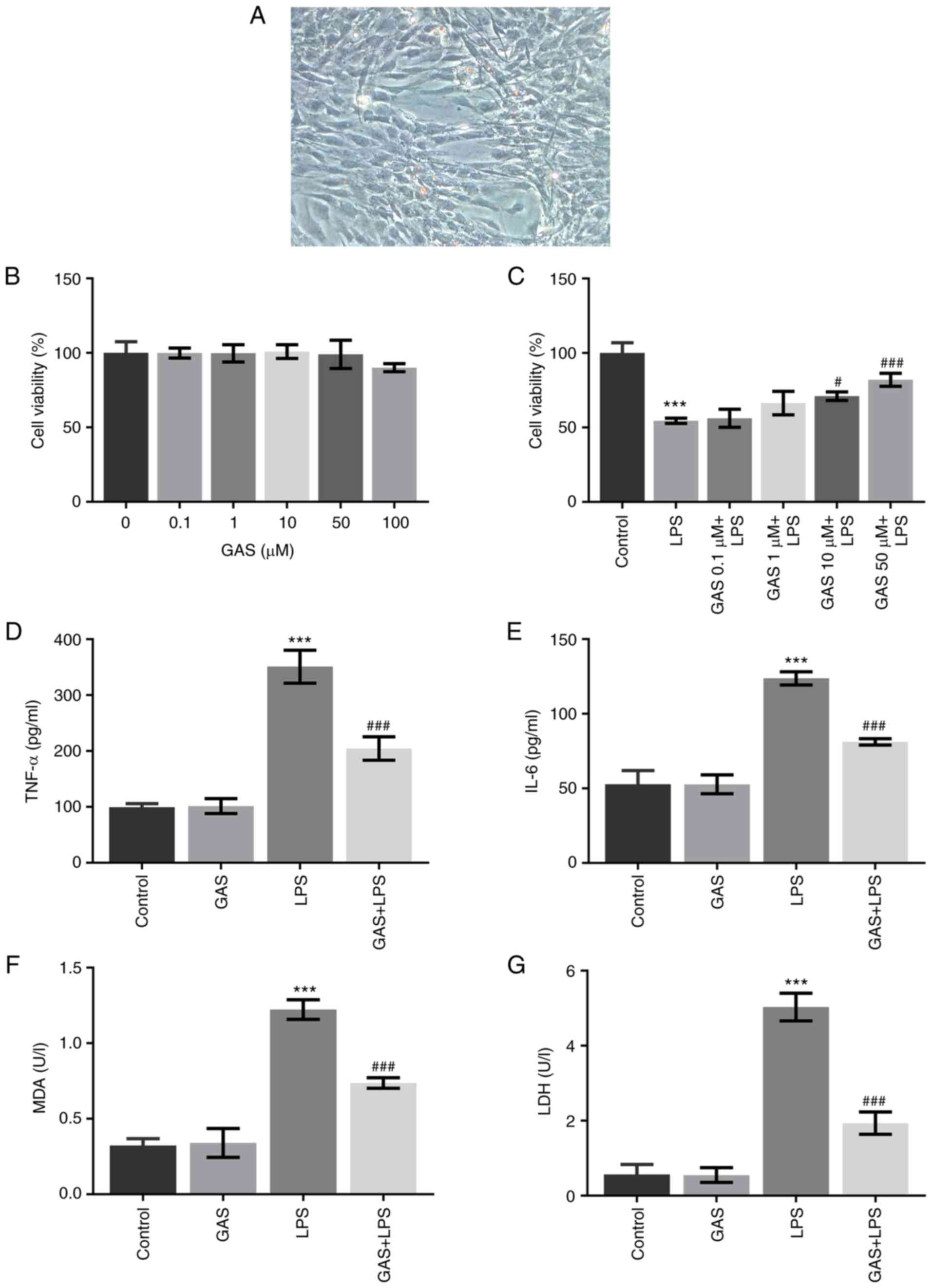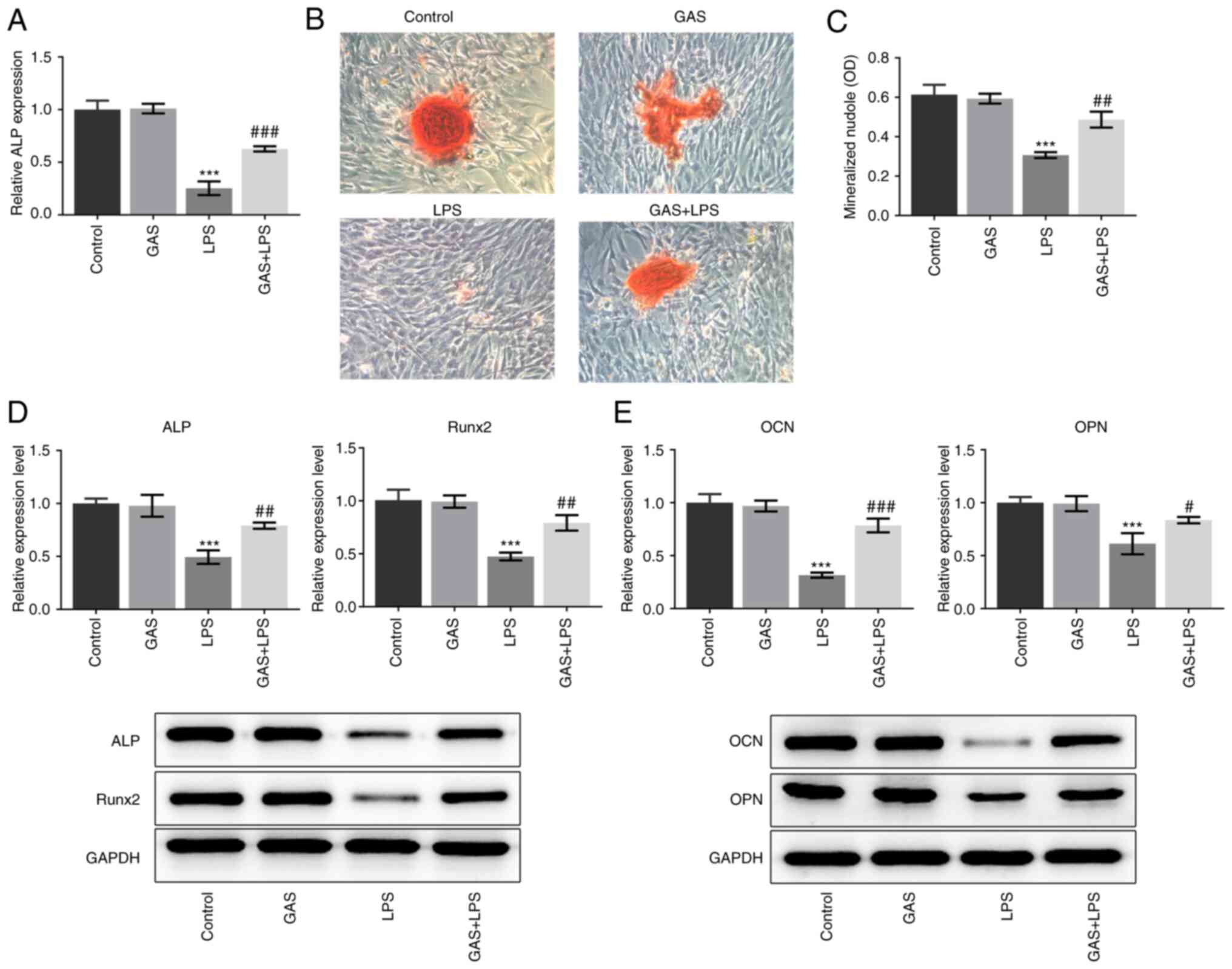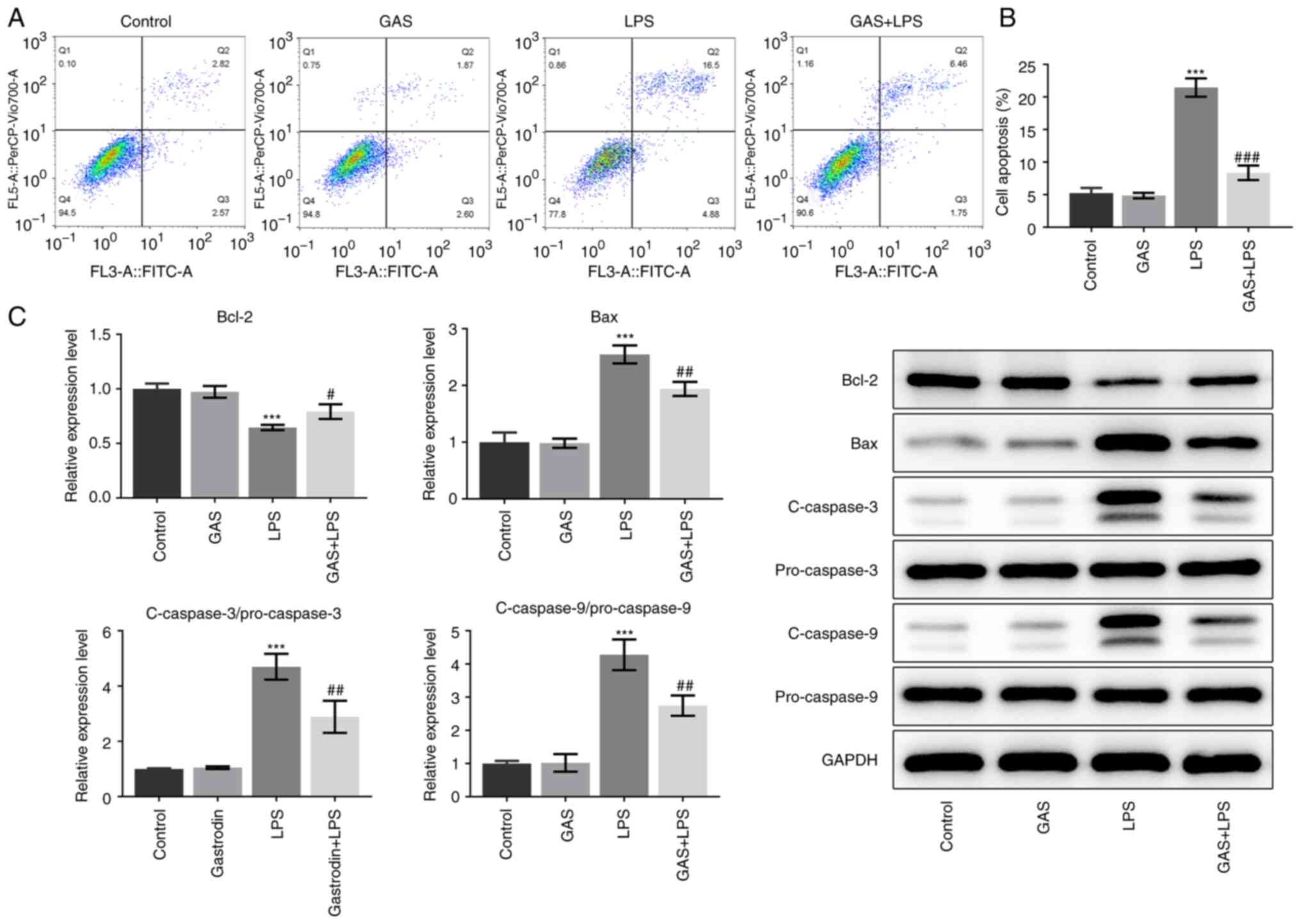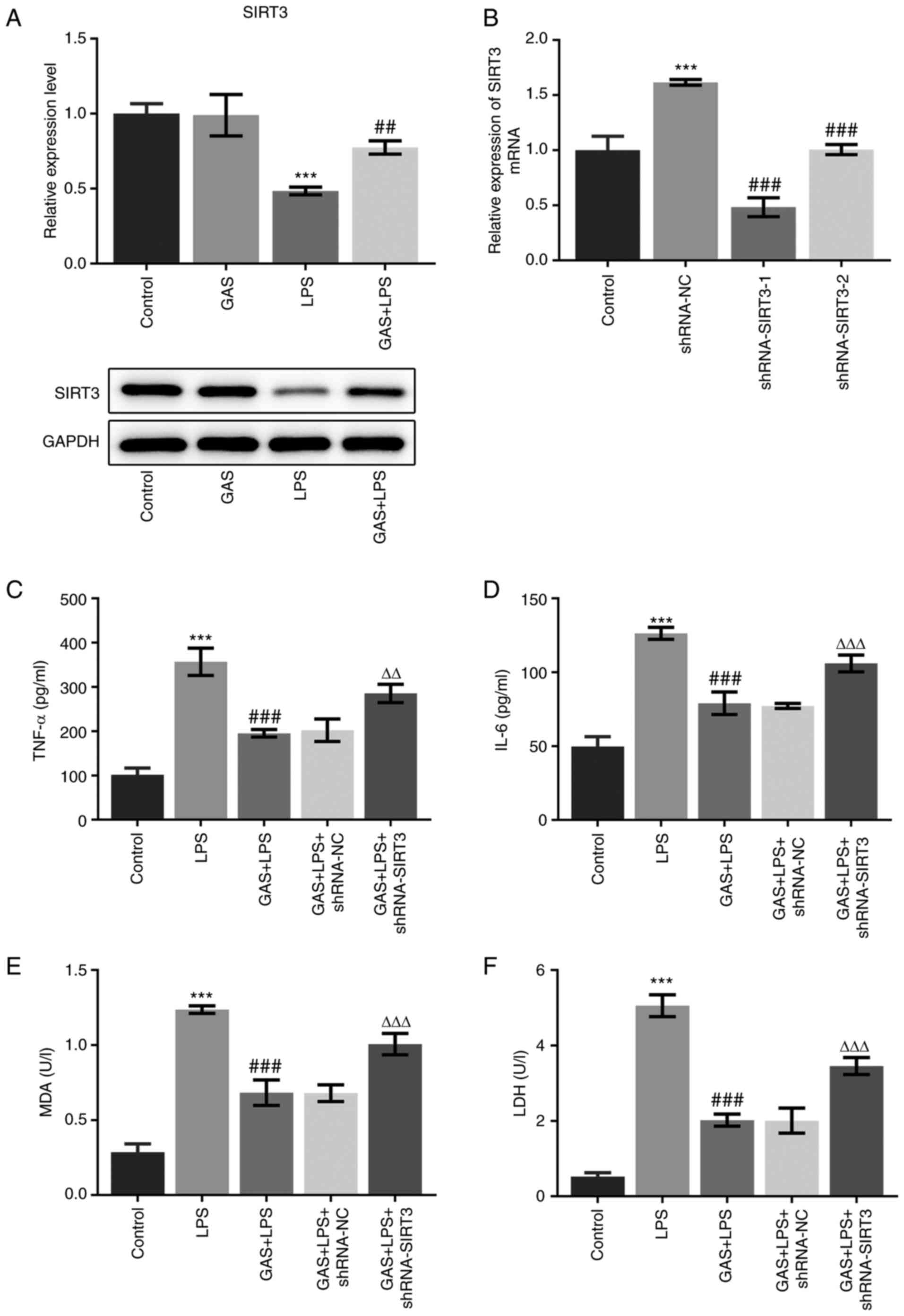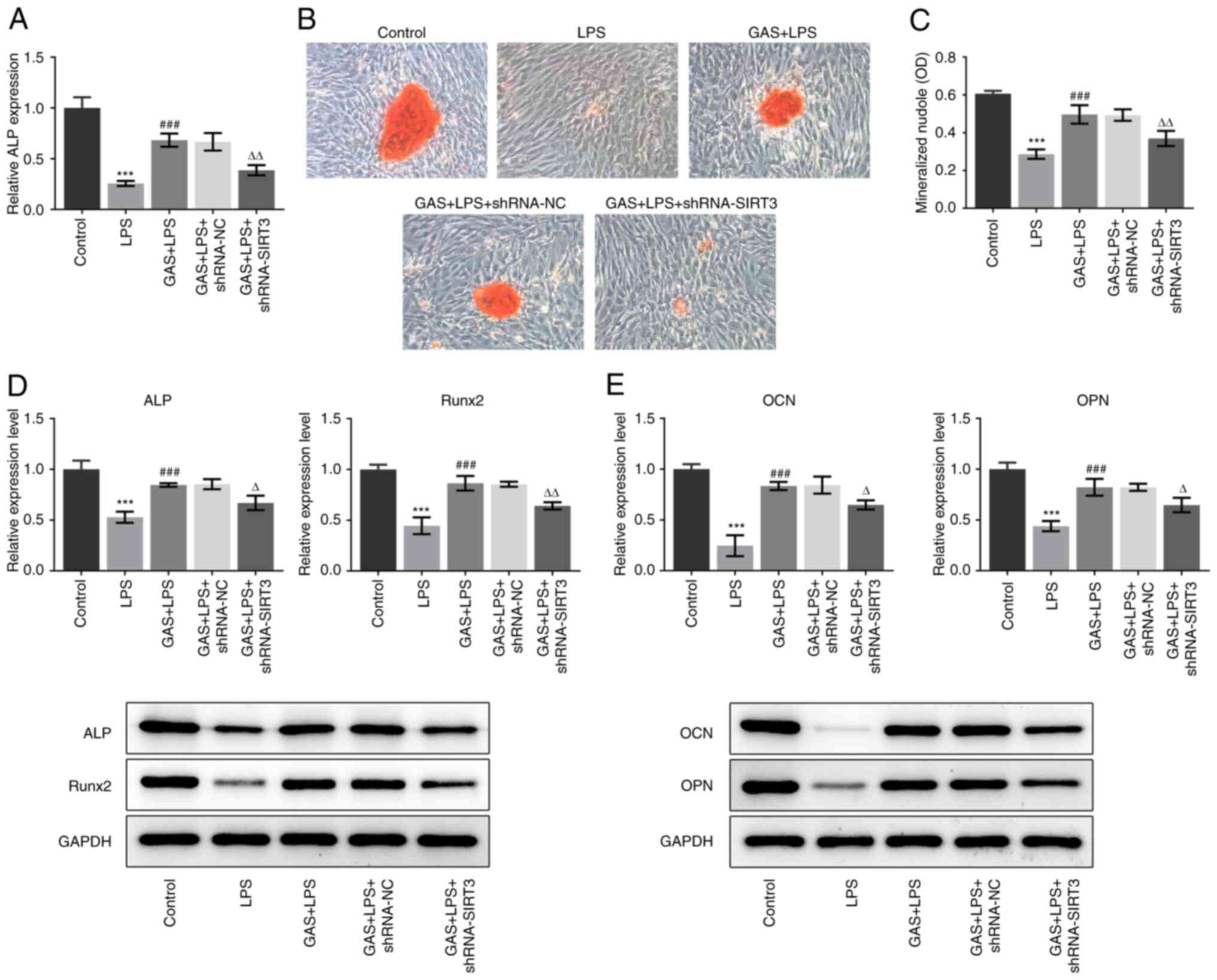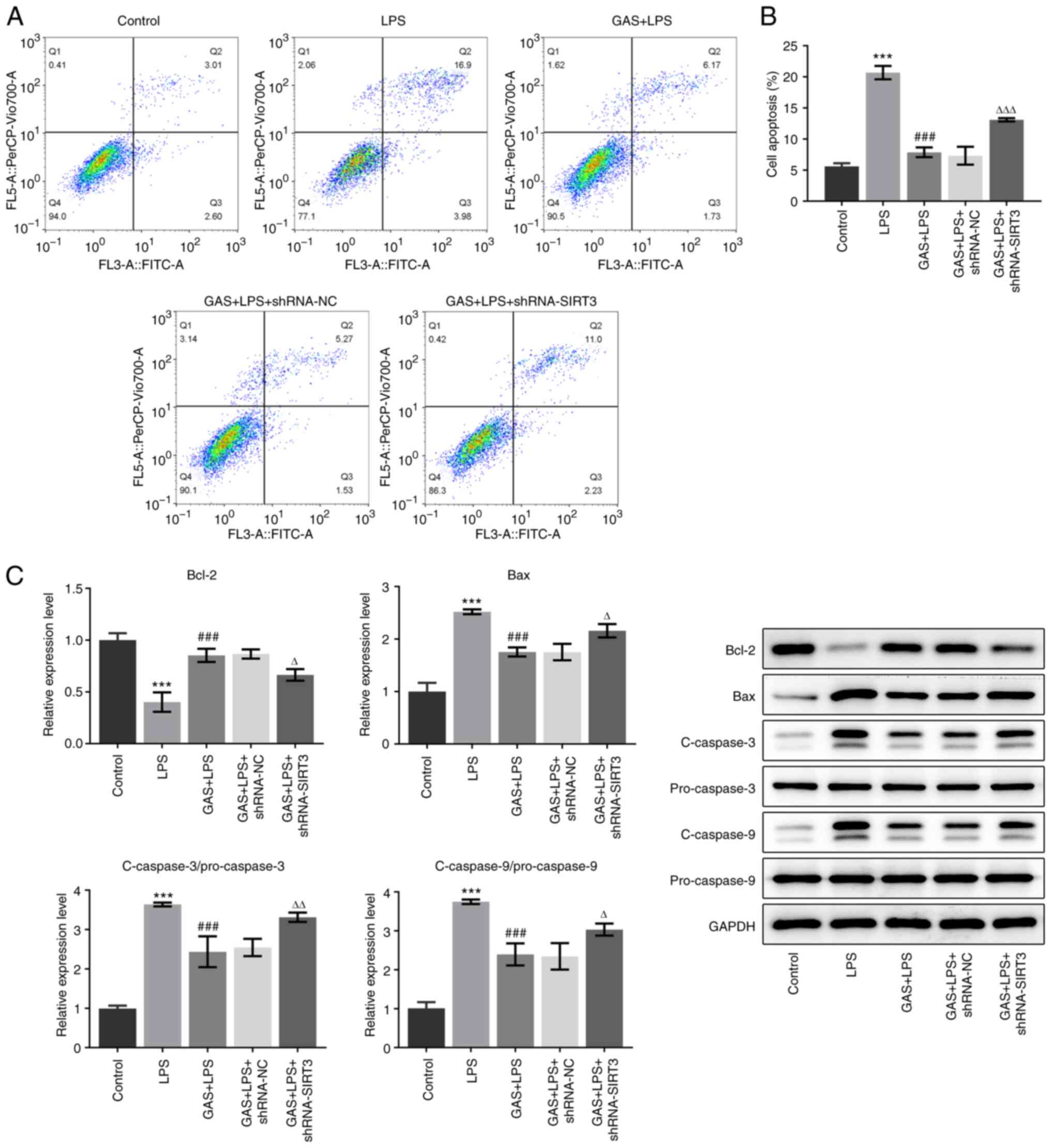|
1
|
Kumar S: Evidence-based update on
diagnosis and management of gingivitis and periodontitis. Dent Clin
North Am. 63:69–81. 2019.PubMed/NCBI View Article : Google Scholar
|
|
2
|
Smith MM, Knight ET, Al-Harthi L and
Leichter JW: Chronic periodontitis and implant dentistry.
Periodontol 2000. 74:63–73. 2017.PubMed/NCBI View Article : Google Scholar
|
|
3
|
Hoare A, Soto C, Rojas-Celis V and Bravo
D: Chronic inflammation as a link between periodontitis and
carcinogenesis. Mediators Inflamm. 2019(1029857)2019.PubMed/NCBI View Article : Google Scholar
|
|
4
|
Tomokiyo A, Wada N and Maeda H:
Periodontal ligament stem cells: Regenerative potency in
periodontium. Stem Cells Dev. 28:974–985. 2019.PubMed/NCBI View Article : Google Scholar
|
|
5
|
Cen LP, Ng TK, Liang JJ, Zhuang X, Yao X,
Yam GH, Chen H, Cheung HS, Zhang M and Pang CP: Human periodontal
ligament-derived stem cells promote retinal ganglion cell survival
and axon regeneration after optic nerve injury. Stem Cells.
36:844–855. 2018.PubMed/NCBI View Article : Google Scholar
|
|
6
|
Seo BM, Miura M, Gronthos S, Bartold PM,
Batouli S, Brahim J, Young M, Robey PG, Wang CY and Shi S:
Investigation of multipotent postnatal stem cells from human
periodontal ligament. Lancet. 364:149–155. 2004.PubMed/NCBI View Article : Google Scholar
|
|
7
|
Liu Y, Zheng Y, Ding G, Fang D, Zhang C,
Bartold PM, Gronthos S, Shi S and Wang S: Periodontal ligament stem
cell-mediated treatment for periodontitis in miniature swine. Stem
Cells. 26:1065–1073. 2008.PubMed/NCBI View Article : Google Scholar
|
|
8
|
Zheng W, Wang S, Wang J and Jin F:
Periodontitis promotes the proliferation and suppresses the
differentiation potential of human periodontal ligament stem cells.
Int J Mol Med. 36:915–922. 2015.PubMed/NCBI View Article : Google Scholar
|
|
9
|
Zhang HS, Liu MF, Ji XY, Jiang CR, Li ZL
and OuYang B: Gastrodin combined with rhynchophylline inhibits
cerebral ischaemia-induced inflammasome activation via upregulating
miR-21-5p and miR-331-5p. Life Sci. 239(116935)2019.PubMed/NCBI View Article : Google Scholar
|
|
10
|
Sui Y, Bian L, Ai Q, Yao Y, Yu M, Gao H,
Zhang A, Fu X, Zhong L and Lu D: Gastrodin inhibits inflammasome
through the STAT3 signal pathways in TNA2 astrocytes and reactive
astrocytes in experimentally induced cerebral ischemia in rats.
Neuromolecular Med. 21:275–286. 2019.PubMed/NCBI View Article : Google Scholar
|
|
11
|
Qiu CW, Liu ZY, Zhang FL, Zhang L, Li F,
Liu SY, He JY and Xiao ZC: Post-stroke gastrodin treatment
ameliorates ischemic injury and increases neurogenesis and restores
the Wnt/β-catenin signaling in focal cerebral ischemia in mice.
Brain Res. 1712:7–15. 2019.PubMed/NCBI View Article : Google Scholar
|
|
12
|
Liu B, Li F, Shi J, Yang D, Deng Y and
Gong Q: Gastrodin ameliorates subacute phase cerebral
ischemia-reperfusion injury by inhibiting inflammation and
apoptosis in rats. Mol Med Rep. 14:4144–4152. 2016.PubMed/NCBI View Article : Google Scholar
|
|
13
|
Xi Z, Qiao Y, Wang J, Su H, Bao Z, Li H,
Liao X and Zhong X: Gastrodin relieves inflammation injury induced
by lipopolysaccharides in MRC-5 cells by up-regulation of miR-103.
J Cell Mol Med. 24:1451–1459. 2020.PubMed/NCBI View Article : Google Scholar
|
|
14
|
Zhang Z, Zhou J, Song D, Sun Y, Liao C and
Jiang X: Gastrodin protects against LPS-induced acute lung injury
by activating Nrf2 signaling pathway. Oncotarget. 8:32147–32156.
2017.PubMed/NCBI View Article : Google Scholar
|
|
15
|
Zheng H, Yang E, Peng H, Li J, Chen S,
Zhou J, Fang H, Qiu B and Wang Z: Gastrodin prevents
steroid-induced osteonecrosis of the femoral head in rats by
anti-apoptosis. Chin Med J (Engl). 127:3926–3931. 2014.PubMed/NCBI
|
|
16
|
Huang Q, Shi J, Gao B, Zhang HY, Fan J, Li
XJ, Fan JZ, Han YH, Zhang JK, Yang L, et al: Gastrodin: an ancient
Chinese herbal medicine as a source for anti-osteoporosis agents
via reducing reactive oxygen species. Bone. 73:132–144.
2015.PubMed/NCBI View Article : Google Scholar
|
|
17
|
Zhou F, Shen Y, Liu B, Chen X, Wan L and
Peng D: Gastrodin inhibits osteoclastogenesis via down-regulating
the NFATc1 signaling pathway and stimulates osseointegration in
vitro. Biochem Biophys Res Commun. 484:820–826. 2017.PubMed/NCBI View Article : Google Scholar
|
|
18
|
Liu S, Fang T, Yang L, Chen Z, Mu S and Fu
Q: Gastrodin protects MC3T3-E1 osteoblasts from
dexamethasone-induced cellular dysfunction and promotes bone
formation via induction of the NRF2 signaling pathway. Int J Mol
Med. 41:2059–2069. 2018.PubMed/NCBI View Article : Google Scholar
|
|
19
|
Liu SJ, Liu XY, Li JH, Guo J, Li F, Gui Y,
Li XH, Yang L, Wu CY, Yuan Y and Li JJ: Gastrodin attenuates
microglia activation through renin-angiotensin system and Sirtuin3
pathway. Neurochem Int. 120:49–63. 2018.PubMed/NCBI View Article : Google Scholar
|
|
20
|
Yi X, Guo W, Shi Q, Yang Y, Zhang W, Chen
X, Kang P, Chen J, Cui T, Ma J, et al: SIRT3-dependent
mitochondrial dynamics remodeling contributes to oxidative
stress-induced melanocyte degeneration in vitiligo. Theranostics.
9:1614–1633. 2019.PubMed/NCBI View Article : Google Scholar
|
|
21
|
Giralt A and Villarroya F: SIRT3, a
pivotal actor in mitochondrial functions: Metabolism, cell death
and aging. Biochem J. 444:1–10. 2012.PubMed/NCBI View Article : Google Scholar
|
|
22
|
He X, Zeng H and Chen JX: Emerging role of
SIRT3 in endothelial metabolism, angiogenesis, and cardiovascular
disease. J Cell Physiol. 234:2252–2265. 2019.PubMed/NCBI View Article : Google Scholar
|
|
23
|
Chen J, Wang A and Chen Q: SirT3 and p53
deacetylation in aging and cancer. J Cell Physiol. 232:2308–2311.
2017.PubMed/NCBI View Article : Google Scholar
|
|
24
|
Kanwal A, Pillai VB, Samant S, Gupta M and
Gupta MP: The nuclear and mitochondrial sirtuins, Sirt6 and Sirt3,
regulate each other's activity and protect the heart from
developing obesity-mediated diabetic cardiomyopathy. FASEB J.
33:10872–10888. 2019.PubMed/NCBI View Article : Google Scholar
|
|
25
|
Kitada M, Ogura Y, Monno I and Koya D:
Sirtuins and type 2 diabetes: Role in inflammation, oxidative
stress, and mitochondrial function. Front Endocrinol (Lausanne).
10(187)2019.PubMed/NCBI View Article : Google Scholar
|
|
26
|
Hawkes CP and Mostoufi-Moab S: Fat-bone
interaction within the bone marrow milieu: Impact on hematopoiesis
and systemic energy metabolism. Bone. 119:57–64. 2019.PubMed/NCBI View Article : Google Scholar
|
|
27
|
Huh JE, Shin JH, Jang ES, Park SJ, Park
DR, Ko R, Seo DH, Kim HS, Lee SH, Choi Y, et al: Sirtuin 3 (SIRT3)
maintains bone homeostasis by regulating AMPK-PGC-1β axis in mice.
Sci Rep. 6(22511)2016.PubMed/NCBI View Article : Google Scholar
|
|
28
|
Zhao Y, Liu H, Xi X, Chen S and Liu D:
TRIM16 protects human periodontal ligament stem cells from
oxidative stress-induced damage via activation of PICOT. Exp Cell
Res. 397(112336)2020.PubMed/NCBI View Article : Google Scholar
|
|
29
|
Liljestrand JM, Paju S, Buhlin K, Persson
GR, Sarna S, Nieminen MS, Sinisalo J, Mäntylä P and Pussinen PJ:
Lipopolysaccharide, a possible molecular mediator between
periodontitis and coronary artery disease. J Clin Periodontol.
44:784–792. 2017.PubMed/NCBI View Article : Google Scholar
|
|
30
|
Chen Q, Liu X, Wang D, Zheng J, Chen L,
Xie Q, Liu X, Niu S, Qu G, Lan J, et al: Periodontal
inflammation-triggered by periodontal ligament stem cell pyroptosis
exacerbates periodontitis. Front Cell Dev Biol.
9(663037)2021.PubMed/NCBI View Article : Google Scholar
|
|
31
|
Nakajima Y, Furuichi Y, Biswas KK,
Hashiguchi T, Kawahara K, Yamaji K, Uchimura T, Izumi Y and
Maruyama I: Endocannabinoid, anandamide in gingival tissue
regulates the periodontal inflammation through NF-kappaB pathway
inhibition. FEBS Lett. 580:613–619. 2006.PubMed/NCBI View Article : Google Scholar
|
|
32
|
Jekabsone A, Sile I, Cochis A,
Makrecka-Kuka M, Laucaityte G, Makarova E, Rimondini L, Bernotiene
R, Raudone L, Vedlugaite E, et al: Investigation of antibacterial
and antiinflammatory activities of proanthocyanidins from
pelargonium sidoides DC root extract. Nutrients.
11(2829)2019.PubMed/NCBI View Article : Google Scholar
|
|
33
|
Liu H, Zheng J, Zheng T and Wang P:
Exendin-4 regulates Wnt and NF-κB signaling in
lipopolysaccharide-induced human periodontal ligament stem cells to
promote osteogenic differentiation. Int Immunopharmacol.
75(105801)2019.PubMed/NCBI View Article : Google Scholar
|
|
34
|
Zhong JY, Cui RR, Lin X, Xu F, Zhu T, Li
F, Wu F, Zhou E, Yi L and Yuan LQ: Aberrant DNA methylation of
synaptophysin is involved in adrenal cortisol-producing adenoma.
Aging (Albany NY). 11:5232–5245. 2019.PubMed/NCBI View Article : Google Scholar
|
|
35
|
Liu Y, Gao J, Peng M, Meng H, Ma H, Cai P,
Xu Y, Zhao Q and Si G: A review on central nervous system effects
of gastrodin. Front Pharmacol. 9(24)2018.PubMed/NCBI View Article : Google Scholar
|
|
36
|
Zheng B, Shi C, Muhammed FK, He J,
Abdullah AO and Liu Y: Gastrodin alleviates bone damage by
modulating protein expression and tissue redox state. FEBS Open
Bio. 10:2404–2416. 2020.PubMed/NCBI View Article : Google Scholar
|
|
37
|
Sardiwal S, Magnusson P, Goldsmith DJ and
Lamb EJ: Bone alkaline phosphatase in CKD-mineral bone disorder. Am
J Kidney Dis. 62:810–822. 2013.PubMed/NCBI View Article : Google Scholar
|
|
38
|
Yin N, Zhu L, Ding L, Yuan J, Du L, Pan M,
Xue F and Xiao H: MiR-135-5p promotes osteoblast differentiation by
targeting HIF1AN in MC3T3-E1 cells. Cell Mol Biol Lett.
24(51)2019.PubMed/NCBI View Article : Google Scholar
|
|
39
|
Ding Y, Yang H, Wang Y, Chen J, Ji Z and
Sun H: Sirtuin 3 is required for osteogenic differentiation through
maintenance of PGC-1α-SOD2-mediated regulation of mitochondrial
function. Int J Biol Sci. 13:254–264. 2017.PubMed/NCBI View Article : Google Scholar
|
|
40
|
Yu X, Meng X, Xu M, Zhang X, Zhang Y, Ding
G, Huang S, Zhang A and Jia Z: Celastrol ameliorates cisplatin
nephrotoxicity by inhibiting NF-κB and improving mitochondrial
function. EBioMedicine. 36:266–280. 2018.PubMed/NCBI View Article : Google Scholar
|
|
41
|
Tabrizi R, Moosazadeh M, Lankarani KB,
Akbari M, Heydari ST, Kolahdooz F and Asemi Z: The effects of
synbiotic supplementation on glucose metabolism and lipid profiles
in patients with diabetes: A systematic review and meta-analysis of
randomized controlled trials. Probiotics Antimicrob Proteins.
10:329–342. 2018.PubMed/NCBI View Article : Google Scholar
|















